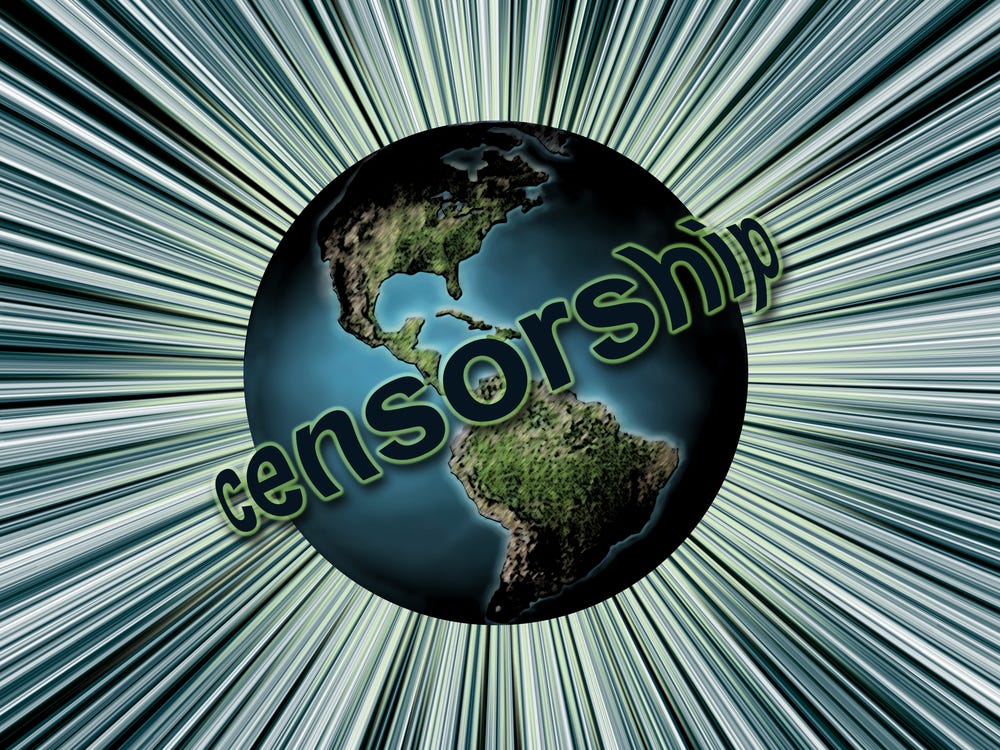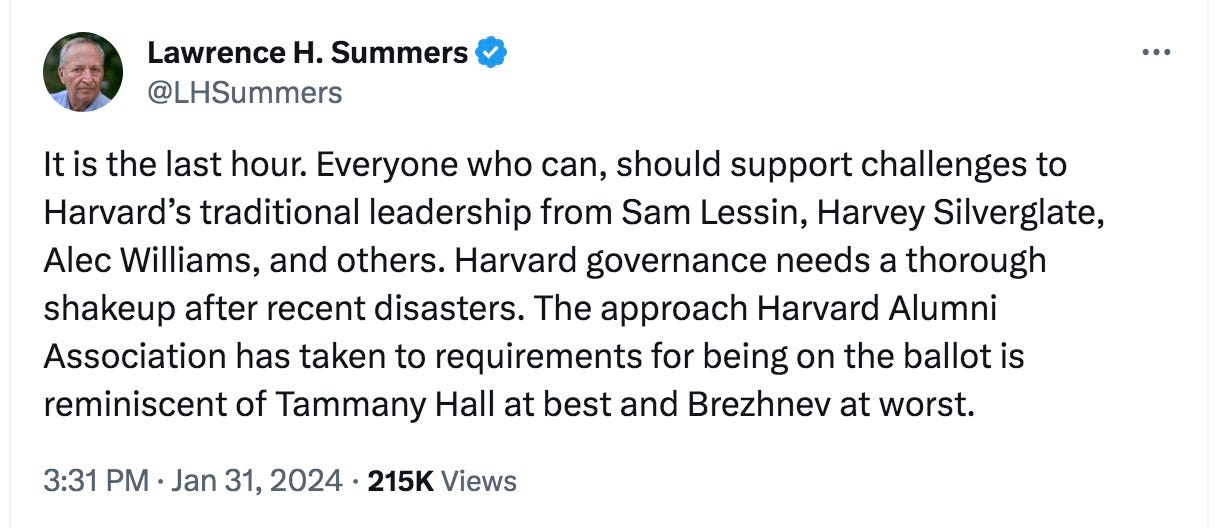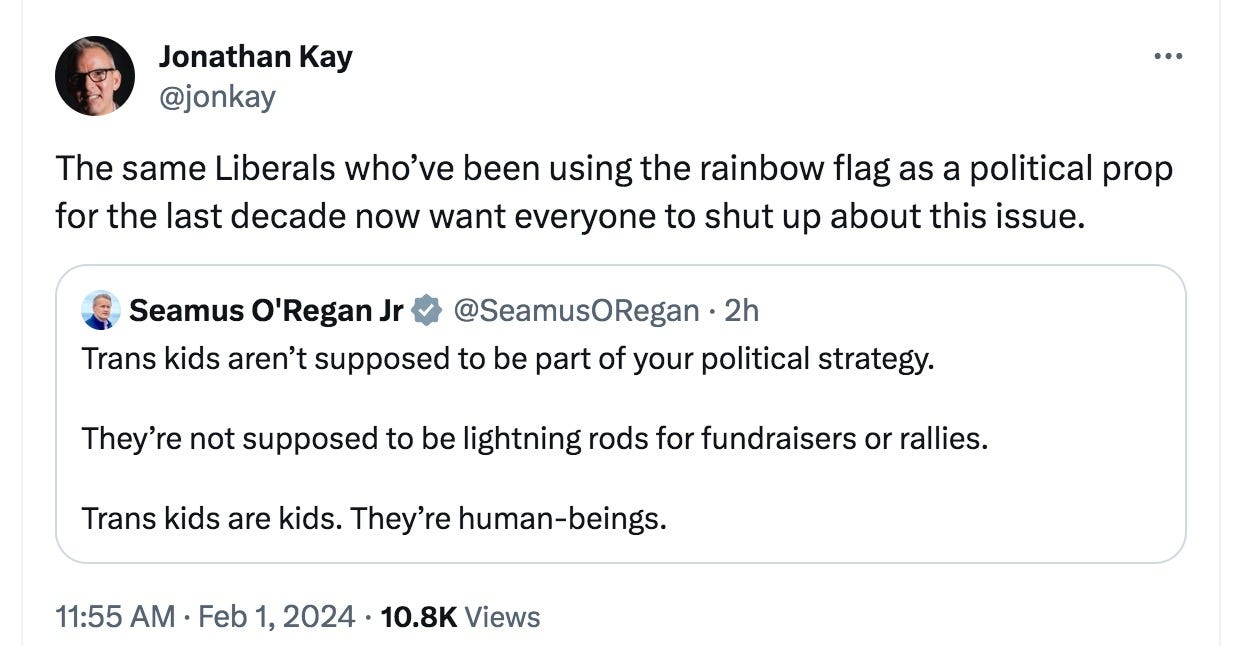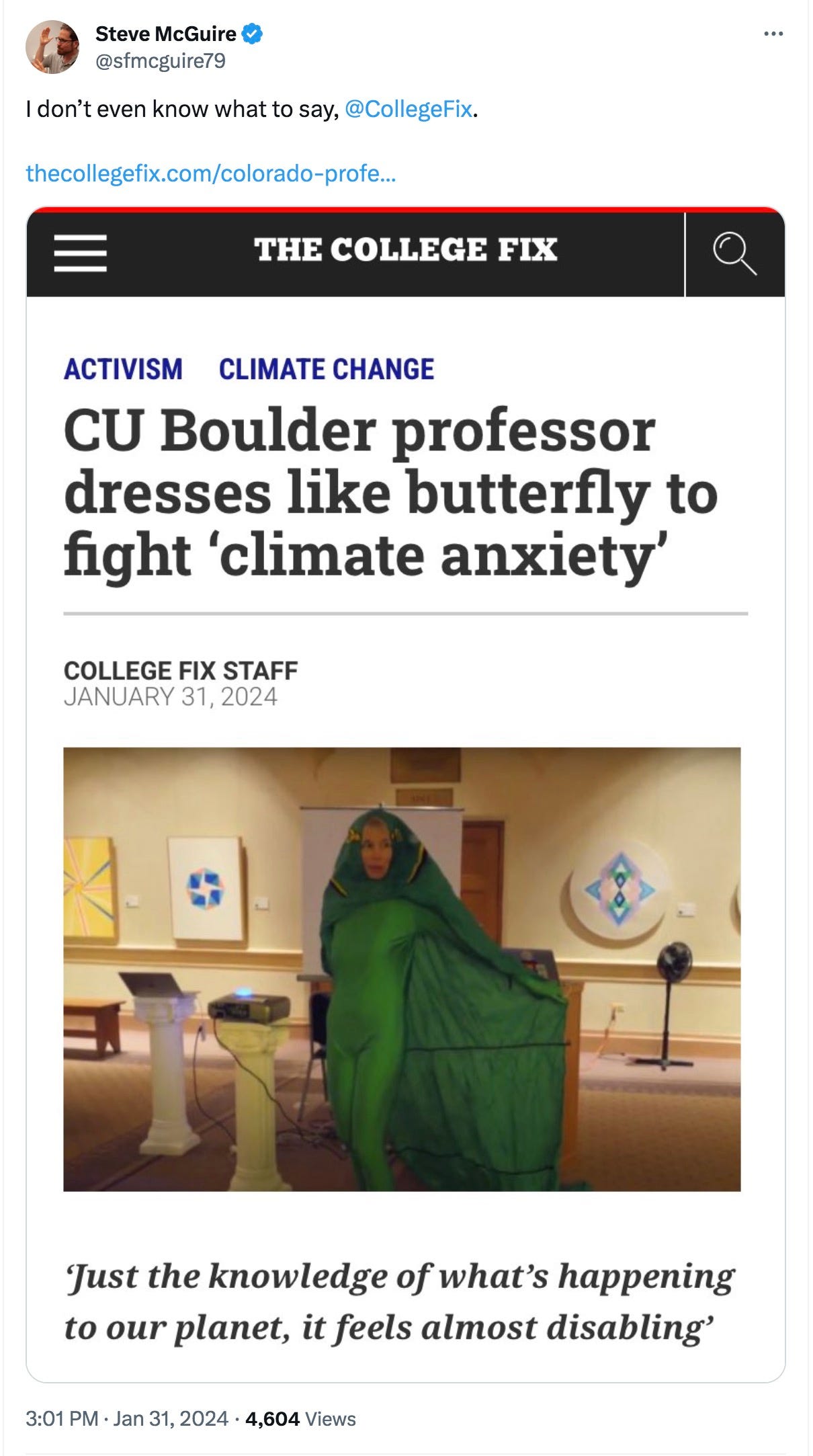E-Pluribus | February 1, 2024
Censorship goes global; fighting "Woke Capital" can backfire; and when is a new word necessary?
A round-up of the latest and best musings on the rise of illiberalism in the public discourse:
Lee Fang: Logically.AI of Britain and the Expanding Global Reach of Censorship
Governments are rightly concerned about harmful mis- and disinformation. But when information reflects badly on those in power, they have a strong incentive to broaden the definition of those terms. At Real Clear Investigations, Lee Fang examines a tech company that specializes in scrubbing social media of undesirable content and its connections to current or former government officials and agencies.
Brian Murphy, a former FBI agent who once led the intelligence wing of the Department of Homeland Security, reflected last summer on the failures of the Disinformation Governance Board – the panel formed to actively police misinformation. The board, which was proposed in April 2022 after he left DHS, was quickly shelved by the Biden administration in a few short months in the face of criticism that it would be an Orwellian state-sponsored "Ministry of Truth."
[. . .]
More recently, Murphy has worked to make his vision of countering misinformation a reality by joining a United Kingdom-based tech firm, Logically.AI, whose eponymous product identifies and removes content from social media. Since joining the firm, Murphy has met with military and other government officials in the U.S., many of whom have gone on to contract or pilot Logically’s platform.
Logically says it uses artificial intelligence to keep tabs on over one million conversations. It also maintains a public-facing editorial team that produces viral content and liaisons with the traditional news media. It differs from other players in this industry by actively deploying what they call “countermeasures” to dispute or remove problematic content from social media platforms.
[. . .]
In many respects, Logically is fulfilling the role Murphy has articulated for a vast public-private partnership to shape social media content decisions. Its technology has already become a key player in a much larger movement that seeks to clamp down on what the government and others deem misinformation or disinformation. A raft of developing evidence – including the Twitter Files, the Moderna Reports, the proposed Government Disinformation Panel, and other reports – has shown how governments and industry are determined to monitor, delegitimize, and sometimes censor protected speech. The story of Logically.AI illustrates how sophisticated this effort has become and its global reach. The use of its technology in Britain and Canada raises red flags as it seeks a stronger foothold in the United States.
[. . .]
The company has claimed in its ethics statements that it will not employ any person who holds “a salaried or prominent position” in government. But records show closely entrenched state influence. For instance, Kevin Gross, a director the U.S Navy NAVAIR division, was previously embedded within Logically's team during a 2022 fellowship program. The exchange program supported Logically’s efforts to assist NATO on the analysis of Russian social media.
Other contracts in the U.S. may be shrouded in secrecy. Logically partners with ThunderCat Technologies, a contracting firm that assists tech companies when competing for government work. Such arrangements have helped tech giants conceal secretive work in the past. Google previously attempted to hide its artificial intelligence drone-targeting contracts with the Defense Department through a similar third party contracting vendor.
But questions swirl over the methods and reach of the firm as it entrenches itself into American life, especially as Logically angles to play a prominent role in the 2024 presidential election.
Read the whole thing.
James Surowiecki: The War on ‘Woke Capital’ Is Backfiring
Florida’s tussle with Disney is probably the best known example of a state pushing back on what it sees as undue political influence in the way corporations are run. But other states are getting into the act as well. At The Atlantic, James Surowiecki argues that this kind of governmental involvement is unnecessary, unwise, and often counterproductive.
One of the stranger political crusades of the past few years has been the Republican war on so-called woke capital, which has led GOP politicians across the country to adopt a kind of anti-corporate, pro-regulatory rhetoric that one normally associates with the left wing of the Democratic Party. And among the GOP’s favorite targets in this war has been ESG investing—investment funds that take “environmental, social, and governance” considerations into account.
[. . .]
Earlier this month, [Republican legislators in New Hampshire] proposed a bill that would order any government agency investing state funds to ensure that no public money goes to investors who manage their funds “with any regard whatsoever based on environmental, social, and governance (ESG) criteria.” More striking, the bill would make it a felony to knowingly violate this order. (The wording of the bill does not attempt to define ESG, aside from using this catchphrase language.) In other words, the bill would effectively criminalize any ESG investments on the state’s behalf.
[. . .]
In the simplest sense, after all, the new law would effectively exclude many investment companies from consideration—even if their funds’ track records suggest that they might outperform the market. (Again, this could include giant, mainstream firms such as BlackRock.) It would eliminate the possibility of using, say, funds that pay attention to climate-change risk as a hedge against that risk, even if a state’s pension fund also had many investments in fossil-fuel companies.
And the broadness of the law’s language—including, most notably, its prohibition on funds that use ESG criteria “with any regard whatsoever”—would likely ban investments in funds that take environmental factors into consideration, even when those considerations were plainly relevant to future corporate prospects. That could easily apply to such firms as ExxonMobil and Tesla.
[. . .]
Naturally, the authors of the bill include some weasely language in the legislation that gives them plausible deniability when it comes to the obvious negative business consequences the law would have. The bill would make it a felony only if state money is invested “knowingly in a manner violating fiduciary duty concerning environmental, social, and governance (ESG) criteria.” In other words, if the state agency doing the investing can prove that using ESG criteria was in line with its fiduciary duty, it could escape the felony charge.
The problem, of course, is that no government officials are going to take the risk of being dragged into court because they included the wrong fund as an investment choice. So even if actually enforcing the law might be challenging—how do you prove that taking governance into account was not financially motivated?—agencies will take the easy way out, and simply blacklist any company that mentions ESG (or perhaps even the words governance and environment). And that chilling effect is, of course, exactly the point of the law.
Read it all.
John McWhorter: When We Do, and Don’t, Need a New Phrase to Describe Reality
In a recent New York Times newsletter essay that might raise the hackles of many readers (and writers), John McWhorter suggested that we may need another word for “plagiarism,” one that accounts for intent and the degree of the offense in question. This week, McWhorter ponders a related question: when is coining new words and terms truly justified?
[T]he past few years have seen an uptick in suggestions that we use new terms to refer to things and, especially, people, the intent being to refashion how we perceive them. At the Metropolitan Museum of Art, for example, an extensive set of suggestions is making the rounds among volunteers. One such suggestion is that volunteers say that people “have” a disability rather than that they “suffer” from it. A similar recommendation on a similar list (since taken down) from Brandeis University’s Prevention, Advocacy and Resource Center emphasized person-first language to such a degree that one would have to refer to earthquake victims as people who have experienced an earthquake. In both cases, the idea is to avoid essentializing people as sufferers or victims.
The problem with terminology like this is that because the correspondence between words and reality is only ever approximate, these novel ways of speaking would not affect our understanding of the world. To say that someone “has” a disability hardly distracts us from the fact that the person, inherently, suffers because of it — this is baked into the very concept of disability whether we utter the verb or not. Similarly, saying that someone experienced an earthquake will never change our perception that a person whose home was reduced to rubble is a victim. (Never mind that it is unclear what the benefit would be if it actually did.)
Our discussion of “plagiarism” is also useful, however, in that it demonstrates that there are times when clarity makes the addition of a new word or phrase to our vocabulary useful. For example, there was a time just a few decades back when there were no established terms for “sexual harassment” or “date rape.” People typically understood “rape” and “sexual assault” to be violent attacks by strangers. What we now call date rape was often dismissed by society as “not the real thing.”
[. . .]
A similar example is raised by the acronym ADOS, for American Descendants of Slavery. The movement bearing this name advocates making a distinction between Black people with ancestry within the United States and Black people with ancestry in the Caribbean and Africa but not the United States. Their proposition is that if the government should ever grant reparations for slavery, they should go only to ADOS, rather than to all Americans of African genetic descent. Although I am unenthusiastic about reparations as a concept, I agree with this game plan if they are ever granted, and feel that a new, non-acronym term distinguishing the native-descended subset could be useful — certainly better than on-the-fly hacks like “Black people from here,” “real Black people” and the like.
I should note that some of the ADOS idea’s most fervent supporters have fostered outright divisiveness between the two subsets of Black Americans and have been linked to anti-immigration activists. I cannot walk alongside them. However, if this divisive strain fades and what remains is an explicit term for Black Americans descended from slavery, it will be useful to any number of discussions. I dispute claims that all Black Americans must march under the same label because skin color means experiencing racism regardless of whether one’s roots are in Ghana or Gary, Ind. Racism is an unnecessarily gloomy and unconstructive keystone for a racial self-conception, especially in the 21st century.
Read it all here.
Around Twitter (X)
Former Harvard president Lawrence Summers throws down the gauntlet for those looking for change at the university:
Jonathan Kay senses a little hypocrisy on the politicization of the transgender issue:
And finally, I know I feel less anxious now! How about you?









